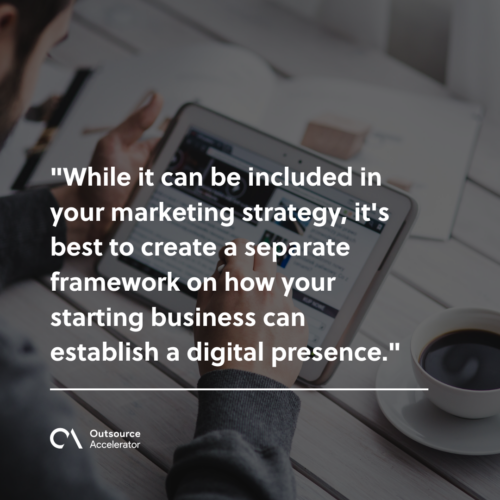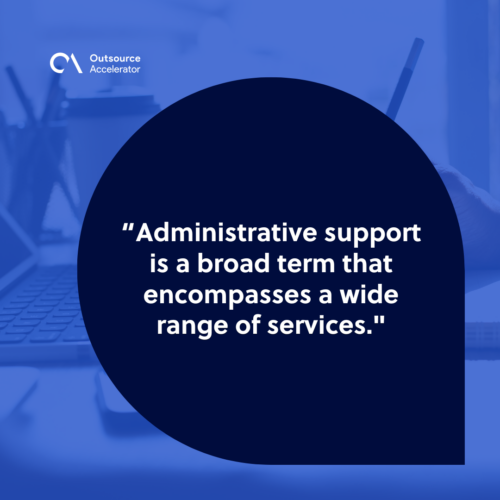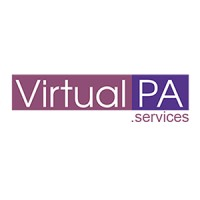What you need when starting a business in 2024

This article is a submission by Virtual PA Services. Virtual PA Services stands out as a reliable and experienced provider of a wide range of virtual assistance services, designed to streamline operations and allow businesses and executives to focus on their core activities.
Starting a business can be an exciting and rewarding experience. However, it can also be challenging and overwhelming, especially if you’re new to entrepreneurship.
Selling your products and services is only the tip of the iceberg when starting a business. It takes a lot of time, resources, and effort to set up your digital presence, make your content noticeable, and build a strong customer base to make your business last for long.
This article will provide a comprehensive guide to help you start a business in 2024.
What you need when starting a business
Now is always a good time to start a business. With the gig industry projected to swell to US$14.39 billion by 2030, more professionals are starting to set up shop with their practices and products.
Many small businesses start by offering products to close networks and setting their business plans once they grow. However, having these plans beforehand is a better way to kick off their shop and guide their journey to expansion.
Here are some of the plans and strategies you will need when starting a business.
- Business plan
- Marketing plan
- Online presence
- Legal arrangements
- Business insurance
Business plan
When starting a business, it’s best to envision what your organization looks like and its purpose in the market.
A business plan gives you this insight, serving as a roadmap that outlines your goals and tactics. It compiles your overall business structure, strategy, and initial outlook.

Business plans can be updated periodically, adapting to the changes in your industry. Further, it should include the following sections:
Executive summary. The executive summary is a brief overview of your business plan. It should include a description of your business, target market, unique selling proposition, and financial projections.
Company description. The company description provides a detailed overview of your business. It should include your products or services, target market, competition, and business model.
Market analysis. The market analysis provides an in-depth analysis of your target market. It should include information about your customers, competitors, and industry and how you plan to make your products seen through your market.
Products and services. The products and services section provides a detailed description of your products or services.
It should include information about the features and benefits of your products or services, your pricing strategy, and your distribution channels.
Marketing and sales strategy. The marketing and sales strategy outlines how you plan to promote and sell your products or services. It should include your marketing channels, sales process, and pricing strategy.
Financial projections. The financial projections provide an estimate of your business’s financial performance. It should include information about your revenue, expenses, and profits.
Management and organization. The management and organization section provides information about your team and organizational structure. It should include information about your key personnel, their roles and responsibilities, and your organizational chart.
Marketing plan
A marketing plan is a document that outlines your marketing strategy. When word-of-mouth marketing isn’t enough to promote your business, a detailed marketing plan can guide you better.
It’s best to have at least a skeleton of your marketing plan prior to starting a business. Further, it should include the following sections:
Situation analysis. The situation analysis provides an overview of your business environment. It should include information about your competitors and industry and how you fare through the market.
Target market. The target market is the group of customers that you want to reach with your marketing efforts. It should include your customers’ demographics, psychographics, and behavior.
Marketing mix. The marketing mix is the set of tactics that you will use to promote your products or services.
Budget and timeline. The budget and timeline section estimates your marketing expenses and the timeline for your marketing activities.
Evaluation and control. The evaluation and control section outlines how you will measure the effectiveness of your marketing efforts. It should include your key performance indicators (KPIs) and evaluation methods.
Online presence
An online presence is essential for any business today. While it can be included in your marketing strategy, it’s best to create a separate framework on how your starting business can establish a digital presence.

Here are some tips to help you establish an online presence.
Create a website
Your website is the foundation of your online presence. It should be well-designed, easy to navigate, and optimized for search engines. Make sure you employ a reputable freelancer or agency.
Utilize search engines
Search engine optimization (SEO) is optimizing your website to rank higher in search engine results pages (SERPs). It involves optimizing your website’s content, structure, and metadata.
Promote through social media
Social media is a powerful tool for promoting your business and engaging with your customers. It can help you build brand awareness, drive traffic to your website, and increase sales. Employing a social media manager can make a big difference!
Use email marketing
Email marketing is a cost-effective way to reach customers and promote products or services. It can help you build customer relationships, increase customer loyalty, and drive sales.
Consider paid advertising
Paid advertising can help you reach a wider audience and drive more traffic to your website. It can include search engine advertising, social media advertising, display advertising, and more.
Legal arrangements
Legal arrangements are important to protect your business and ensure compliance with the law. Prepare the following documentation at hand before starting a business.
Business structure. Your business structure determines how your business is organized and taxed. The most common business structures are
- sole proprietorship
- partnership
- limited liability company (LLC), and
- corporation
Business licenses. Business licenses and permits are required to operate in most jurisdictions. They can include general business licenses, professional licenses, and permits for specific activities.
Before starting a business, know how to register your operations in your destination and get licenses.
Patents. Trademarks and patents can protect your intellectual property and prevent others from using your ideas without permission. A patent is a legal right granted to inventors to prevent others from making, using, or selling their invention.
Contracts and agreements
Contracts and agreements are legal documents defining your business relationships’ terms. Here are some contracts and agreements you should consider:
- Partnership agreement
- Operating agreement
- Shareholder agreement
- Employment agreement
- Independent contractor agreement
- Non-disclosure agreement (NDA)
- Service level agreement
- Sales agreement
Business insurance
Lastly, business insurance is essential to protect your business from unexpected events. While it is not necessary to apply for one upon starting a business, you would need it
Here are some types of business insurance you should consider:
- General liability insurance
- Property insurance
- Workers’ compensation insurance
- Professional liability insurance
The right insurance coverage can help you mitigate risks, protect your assets, and safeguard your business.
Outsourcing administrative support when starting a business
Administrative support is a broad term that encompasses a wide range of services. It includes virtual admin, typing services, phone answering, schedule management, travel PA, social media management, and more.

These services are designed to help businesses and individuals manage their day-to-day tasks more efficiently.
Virtual admin services
Virtual admin services are becoming increasingly popular as more and more businesses move online. They provide various services, including data entry, email management, appointment scheduling, and more.
Virtual admins work remotely, meaning they can provide services to clients worldwide.
Typing services
Typing services are another type of administrative support. They are designed to help businesses and individuals with their typing needs. This can include anything from transcribing audio recordings to typing up handwritten notes.
Phone answering services
Phone answering services are also a popular form of administrative support. They are designed to help businesses manage their incoming calls more efficiently. Phone answering services can provide a range of services, including call forwarding, message taking, and more.
Schedule management
Schedule management is another important aspect of administrative support. It involves managing a person’s schedule, including setting appointments and arranging meetings. This can be a time-consuming task, so many people outsource it to a professional.
Travel PA services
Travel PA services are designed to help people manage their travel arrangements. This can include everything from booking flights and hotels to arranging transportation.
Travel PAs can help make travel planning less stressful and more enjoyable.
Social media management
Social media management is another important aspect of administrative support. It involves managing a person’s social media accounts, including posting updates, responding to comments, and more. Social media management can help businesses and individuals build their online presence and engage with their audience more effectively.







 Independent
Independent




